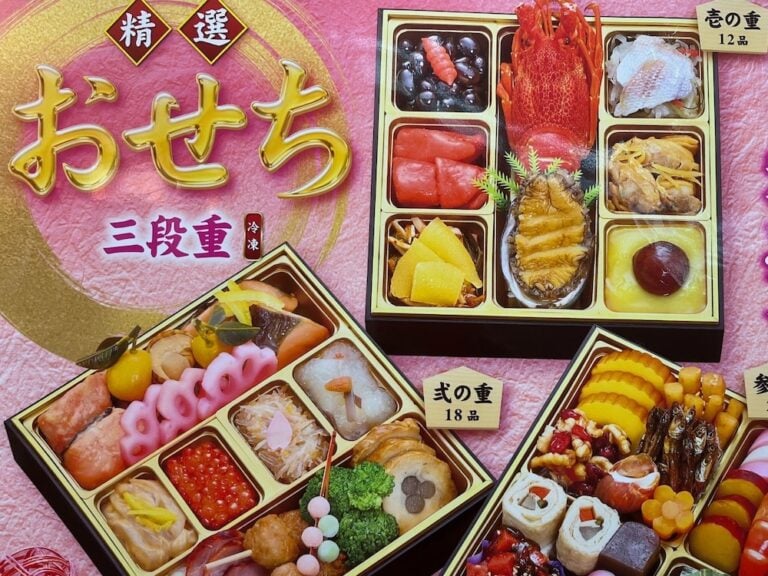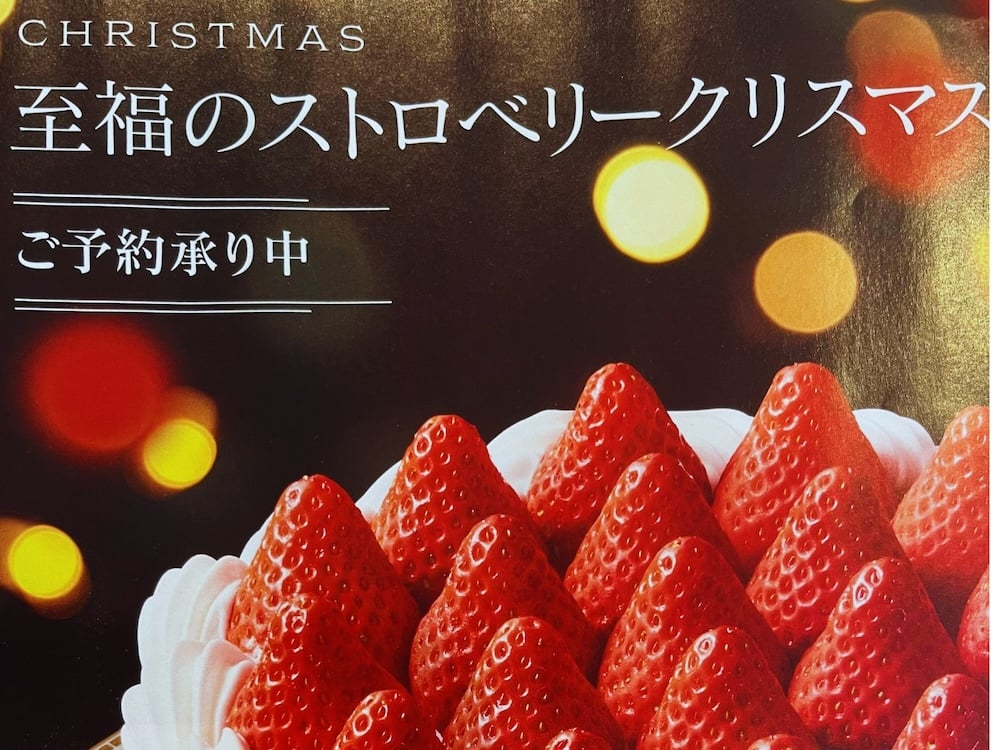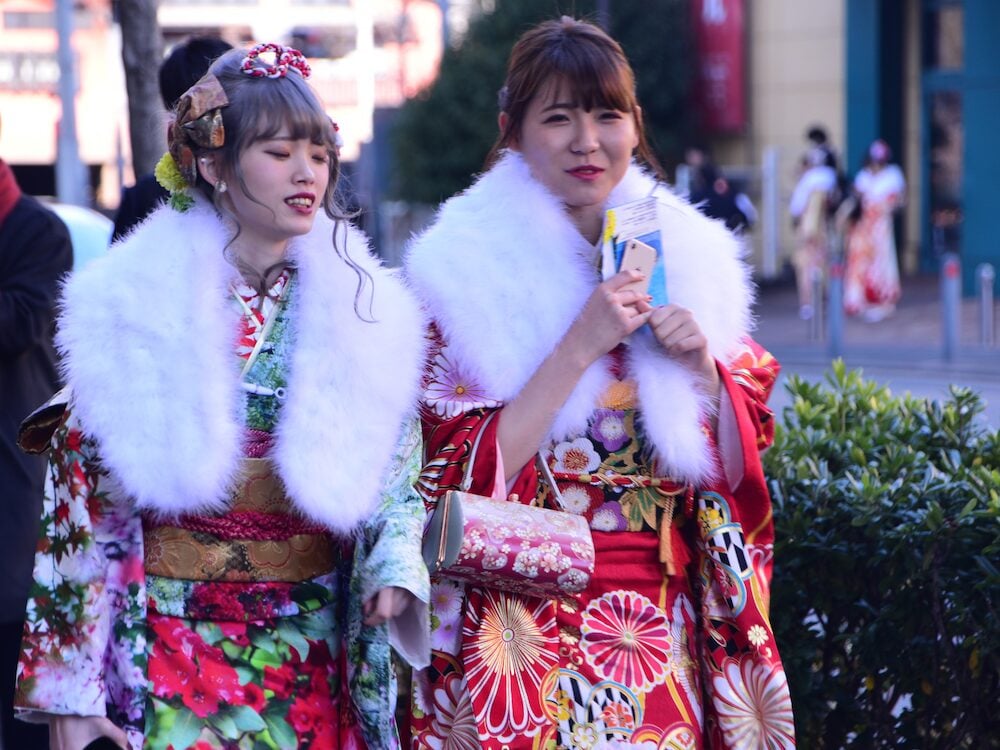
You might think October is too early to start planning your year-end holidays, but now is the time to begin. By December, everything will be either fully booked, sold out, or significantly more expensive. In my experience, the anticipation and planning are often more enjoyable than the trip itself. While the trip may only last a few days, the weeks or months spent discussing and organizing it are filled with excitement and possibilities—especially when those moments of planning provide a welcome escape from the fatigue of daily life.
The abundance of Christmas decorations can give the impression that Japan fully embraces the holiday. However, as soon as December 25th passes, the lights and Santa’s quickly disappear, making way for preparations for the real celebration: New Year’s. If you were impressed by the Christmas-themed goods, you will be amazed by the sheer variety and volume of items available for year-end festivities. Stores go all out, stocking up on everything needed for New Year’s celebrations, far surpassing the offerings at Christmas.
Keep Your Eye on Public Holidays
During Emperor Akihito’s reign, his birthday was celebrated on December 23rd, creating a seamless transition into the festive Christmas season. Many people used this holiday for bonenkai (year-end parties) and other gatherings. However, with no public holidays in December in the current calendar, we are left to trudge through the long month before finally reaching the year-end break.
Depending on your company, year-end breaks may not align with the standard public holiday schedule. It is a good idea to confirm the company’s holiday plan and expectations with your supervisor early on and secure your days off as soon as possible. If you are living in Japan, are you planning to visit home or a local getaway? Start looking into flights and hotels now to lock in better prices before the holiday rush.
Banks and the post office will close for several days for year end holidays so be sure to take care of all your financial obligations before the year-end rush since it is a busy time, and others are trying to do the same.

Year End at the Company
For companies with a financial year ending on December 31st, the fourth quarter is when everyone begins scheduling and planning to ensure a smooth year-end close. If you work in finance, this period is likely familiar, often marked by long hours and high stress. For those in other departments, the focus might be on using any unspent budget, often within a tight window of just three months. Either way, it is a busy and important time for most companies.
If your Japan-based company works with subsidiaries or partners abroad, you will need to account for holiday schedules on both sides. Many overseas teams take time off around Christmas, while in Japan, the focus is on New Year’s holidays. As a result, work can slow down for three weeks or more during this period. From my experience in an international company, we never scheduled major activities between mid-December and early January, as either the overseas teams or the Japan-based teams were typically on holiday.
Is your company expecting you to be reachable during the long holiday breaks? The answer depends on both your company’s policies and the nature of your role. Ideally, during company-wide closures, only those responsible for solving critical issues should be contacted in case of emergencies. It is important for each company to clearly define what qualifies as an emergency. For example, an issue where customers are unable to make purchases on the company website would warrant urgent attention, while updating non-essential text on the site would not. Reaching out to someone who can’t resolve an issue is unnecessary, however, management should always be informed of any major disruptions to business operations.

Kicking Off the New Year
After the holidays end and everyone returns to work, the first week is typically slow. On the first day back, it is common for teams to visit a local shrine to pray for good fortune in the new year or have lunch together. Traditionally many companies only worked a half day on the first day, however, I think this practice has long since been discarded. Ease into the rhythm—curb your enthusiasm and adapt to the pace your office has established during the start of the new year since work will soon ramp up.
The second Monday in January is the holiday for the Coming-of-Age ceremony. The ceremony is held to congratulate and recognize the young people who have reached the age of twenty, which confers on them many rights of adulthood. After this holiday, everyone at the office will really feel that the new year has begun and commit themselves to work in earnest.
At the start of the year, it is important to confirm with your company whether they have completed your Japanese income tax filing. Typically, companies reach out to employees in the fourth quarter to gather details about dependents and other relevant information, then handle the tax filing with minimal employee involvement. However, if your company does not manage this process for you, you will need to complete the filing on your own by mid-March. If you have any questions, the staff at City Hall should be able to assist.
Japan’s Traditional Calendar
In Japan, most companies, schools, and organizations finish their annual cycle on March 31st. For domestic companies, this marks the financial year-end, with all new activities commencing on April 1st. The start of April is the time when young recruits join companies, the academic year begins, and various new ventures and activities are launched.
For foreigners starting a school program in Japan in April, it is worth noting that Golden Week, which occurs just a few weeks later, can interrupt the rhythm you have just started. While Golden Week is a much-anticipated holiday period, it can disrupt your new routine. This series of national holidays is also a peak travel time, so if you are planning a trip, use the same strategy as for year-end—start planning and booking early to ensure you secure the best options.
Find Your Rhythm in Japan
Once you have been through one or two annual cycles in Japan or at your company, the routine and expectations will become second hand. For me, the most important point is staying on top of tax and other financial obligations with the Japanese government. Good luck finding your way through the paperwork.













